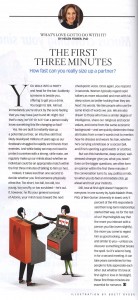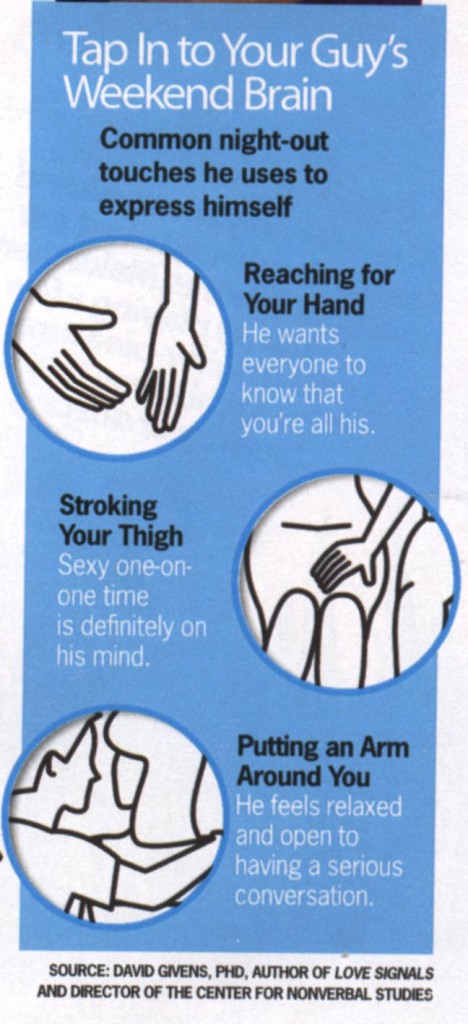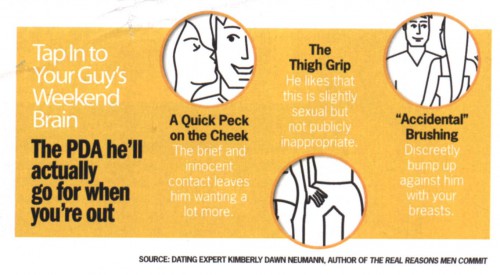How about this vintage novelty telephone sweater from the 50’s? Via terrasita.
Tag: Communication
Dear Chad, Alltel Customer Service Sucks
 A few months ago we switched to Alltel. I love my LG Touch phone, but the other day I had a problem with text messages (a long story) and needed to call for help. You’d think this would be simple, but it wasn’t.
A few months ago we switched to Alltel. I love my LG Touch phone, but the other day I had a problem with text messages (a long story) and needed to call for help. You’d think this would be simple, but it wasn’t.
First I had to get another phone so that I could poke, prod, etc. my LG Touch per their directions; then I had to find the number to call. Going to Alltel.com was discovering the first FAIL:
They require you to enter your zip code to get the “offers” in your area before accessing anything on their site.
Since I’m already a customer — a customer with a problem, no less — this is an unwarranted frustration. To help you, here are Alltel’s numbers:
Personal: 1-800-alltel1 (1-800-255-8351)
Business: 1-888-4AT-BIZZ (1-888-428-2499)
Once I call, go through all the prompts — including entering the digits of my Alltel cell phone — eventually reaching the place where I get the prompt to speak to a person. “Hip-Hip-Hooray!” right?
Wrong.
Once you press (or say) that magic number, Alltel forces you to agree to one of those satisfaction surveys. “Press 1 if you’d like us to call you back in an hour or, if you’ve called after 9 PM, call you back after 9 AM tomorrow, on the number you are calling from; or press 2 if you’d like us to call you back in an hour or, if you’ve called after 9 PM, call you back after 9 AM tomorrow, on your Alltel phone.”
Wait a freakin’ minute.
I have to agree to a “How satisfied are you?” survey before I even get any help?!
WTF!
My already frustrated brain was certain that my transfer to a person had been lost and that the system had bumped me ahead to the post-call recording.
I mean, why would they hold a customer hostage like that?
But I angrily spit-out the vocal response and was finally patched-through to a human, a human who — yes, you guessed it! — made me give my Alltel number out again before she could/would help me.
I get that we live in an age where everything has to be as automated as possible because even outsourced jobs cost more than robotic voices and technologic routing. I get that data is at a premium in your competitive business. I get a lot of things about business — your business, and business in general.
But really, Alltel, do you have to hide your contact information?
Do you have to add more layers of insulting behavior to the process, holding human interaction (the very essence of the wireless business) hostage to the tune of promises a frustrated customer must keep?
All of this is like layer after layer of frustrated-icing on a bullshit cupcake.
Here’s a business tip you obviously don’t know, Alltel: It is cheaper to retain a customer than to go out and get a new one.
You don’t retain customers by keeping contact with you at bay, especially when they are already frustrated and calling customer service. So take that advice and stick it in your circle.
Can He Last Three Minutes?
In the November issue of O (and that stands for Oprah, not Orgasm or Overstock.com), Dr. Helen Fisher discusses love at first site — or something rather close in her What’s Love Got To Do With It? column, “The First Three Minutes.”
Retro Tina-Turner-tune-title aside, the article itself is rather fascinating as it says that the first three minutes are essential for romance — and yes, Virginia, there is such a thing as love at first sight.
Fisher says — and my decades of dating experience agrees — that it takes less than one second to decide whether you find someone physically attractive. Then, if the dude passes, women listen. But what they are listening for may surprise you…
Women generally regard rapid talkers talkers as more educated and men with full, deep voices as better-looking than they are.
What the men say is also important — but, it seems, that even if we don’t really love the sound of our own voices, we are hoping to hear ourselves:
We like people who use the same words we use.
We are also drawn to those who have a similar degree of intelligence, share our religious and social values, and come from the same economic background — and we quickly determine these attributes from a man’s words (not to mention how he dresses and wears his hair, whether he’s carrying a briefcase of a soccer ball, and if he’s sporting a gold watch or a tattoo).
If all this sounds a bit too easy to be true, Fisher notes a survey by Ben-Gurion University’s Dr. Ayala Malach-Pines which says that maybe it is: Only 11% of her survey respondents said their long-term relationships began with love at first site.
So then Fisher points out that psychologists say that the the more you interact with a person you like (even slightly), the more you will come to find them good-looking, smart — and the all important “similar to you.”
Unless, that is, you discover a real deal-breaker.
But then that’s what dating is for, right? To spot the bad stuff before you have the mortgage, the kids, and a dog you both want.
Click the pic to read the entire scanned article:
Of But-Tirades & Tirades About Arsehole Jon Gosselin
While fellow Twolia bloggers are debating Kate Gosselin (here — which I agree with — and here), I thought I’d point out what you can learn from Jon Gosselin’s latest stunt.
In front of cameras and people charged $20 a pop, non-Jewish Jon appeared with Rabbi Shmuley Boteach at New York City’s West Side Jewish Center on Sunday night to give what was touted to be his apology to his family & Kate. Only neither Jon nor the Rabbi seems to be aware of the fact that an apology followed by a but-tirade (as in “but she blah blah blah”) about the very person you’re supposedly apologizing to is no apology at all. It’s an attack. A passive-aggressive attack.
Something we’re all used to from Jon “It’s not my responsibility” Gosselin.
However, the lesson here is this: Don’t end your apology with a but — of any kind, let alone about the person you’re apologizing to. If you do, your but-tirade just makes you more of an ass.
Pepsi Perpetuates Predatory Males
Pepsi’s latest foray into social media with an iPhone app for its AMP energy drink is more than trending on Twitter — it’s downright pissing women (and men who give a damn) off.
The “fun” application is called “before you score” — and yes, with “score” means what you think it does: getting laid. As in men who “bag” chicks.
For all the gory details, check out Mashable’s post, “Alienate Your Female Customers? Pepsi Has An App For That” (the title of which is where the trending “alienate your female” topic comes from). But maybe all you need to know is the simple premise of the app, as stated by Mashable’s Adam Ostrow: “AMP has actually built features into its application that make it seem one can systematically “score” by exploiting women’s naivety. Beyond that, they actively encourage users to promote such conquests through social media.”
Whether or not the app can really assist in the exploitation of any woman is neither here nor there. And if Pepsi tries to defend itself with a “the app is just entertainment” it’s no excuse. The pure perpetuation of predatory male stereotypes and encouragement of such actions is horrible.
I would rant on & on about this, but there’s plenty of smart comments to read at Mashable (and at Jezebel too). But that won’t stop me from asking a question…
What’s next, Pepsi, a cave man app where you can slip a Mickey into a woman’s drink and drag her off by the hair? Oh yeah, and brag about it too.
What Signals Are You Sending? (How & Why To See Yourself As Others See You)
Check out the October issue of Psychology Today; it’s full of great dating information (even if it’s not all listed as such). For example, the cover art & headline “What Signals Are You Sending?” which goes with a feature by Sam Gosling, entitled Mixed Signals.
 In the article, Gosling discusses our personal blind spots to the perceptions that others have of us and how we overestimate not just how we are seen in terms of flattering ourselves, but we overestimate the ability others have to be aware of our internal states & feelings — we overestimate the “extent to which our behavior and and appearance are noticed and evaluated by others — a bias known as the ‘spotlight effect.'”
In the article, Gosling discusses our personal blind spots to the perceptions that others have of us and how we overestimate not just how we are seen in terms of flattering ourselves, but we overestimate the ability others have to be aware of our internal states & feelings — we overestimate the “extent to which our behavior and and appearance are noticed and evaluated by others — a bias known as the ‘spotlight effect.'”
In many cases, our opinion of ourselves and the perception of others clash — but that’s not even necessarily the worst part; you might not even be aware of it.
You need feedback (direct & indirect) from others to know what they think of you, and sometimes the very things you need to know the most, negative perceptions, are least likely to be communicated.
If you do know how irritating or attractive you are, it’s probably via direct or indirect feedback from others. At work you might find that, despite setting everyone straight on a few issues when you last served on a committee, you haven’t been asked to serve on any since then. If the attributes are positive — such as the fact that everyone likes you or that you’re very attractive — people are more likely to come straight out and tell you about them. If they’re negative, they may forever remain unknown to you.
If you’re tempted to ignore the perceptions of others, don’t! Your body language is outside your own visual field, but others are very aware of them. And your behaviors are, if not similarly unseen by you, understood by you because you (and often only you) know your motivation & reasoning. So others do have clues for their perceptions and attitudes about you.
Even if you think other people are misguided, their perceptions of your character probably do reflect things you do habitually. Once striking set of studies recently showed that a spouse’s ratings of a person’s anxiety, anger, dominance, and solitariness are better than self-ratings at predicting heard disease. The implication: Our spouses are better judges of such traits than we are.
(I think it’s obviously worth noting the traits listed here; that spouses are better better judges of anger & dominance than the person who is angry & dominant. This refers back to the victim’s need to survive and brings up the point that those in an abused person’s support network — from friends & family to doctors, police, social workers & legal professionals — had better trust them when they say his behavior is dominant, threatening, etc.)
When people are asked how long they think their romantic relationship will last, they’re not very good at estimating the right answer. Their friends, it turns out, fare far better. But if you ask people how satisfied they are in a relationship, their ratings accurately predict how long they’ll stay together. In many cases, we have the necessarily information to understand things are they are — but our blind spots don’t allow us to take it into account.
(Yet another reason to really discuss relationships from many angles, including how happy a person is as part of a couple. Doubly important to do so alone when you fear your friend is being abused, so that they can move past the cover story and predictable prediction points of “we’ll be together forever” — which could very well be a taught or fearful response.)
This doesn’t always mean others are right, of course. Sometimes the blind spots are, again, due to the perceptions of others — based on things they observe which do not reflect what’s going on internally with you. This would seem to be especially important at work and when dating, when dealing with people who do not know you very well yet. Since their perceptions will affect how you are treated (no committees, no promotions; no dates or second dates, etc.) it’s important to see what signals you are sending.
Many of us have times when we are misunderstood. People perceive us as cold and unfriendly when we are really just feeling shy, as flirtatious when we’re just trying to be friendly, or as depressed when we’re just tired. Being misunderstood is largely a problem of a lack of information – not communicating effectively with the people around you through your words and body language.
Gosling cites work by Randall Colvin of Northeastern University which indicates that people who are easily judged, those that people just “get,” tend to be extroverted, warm, consistent, and emotionally stable. These traits, called “amplifiers,” tend to increase the expression of other traits as well as the amount of verbal & behavioral information, making them easier to read.
Another trait that makes people easier to “get,” is “blirtatiousness.” Blurters, those who tend to respond to others quickly & effusively, are open books.
Gosling says that if & when you feel misunderstood, you should say & do more. “Even introverts can train themselves to communicate more through their words — telling people directly what they like and how they feel.”
But before you run out there and babble profusely about how you feel, you should know how others perceive you. And the best way to do this is to ask for feedback. And Gosling wants you to ask more than just your mom. *wink* Seek feedback from many others, including at work and, if possible, your enemies. Gosling also recommends using “the cloak of anonymity” that is the internet; suggesting apps like Facebook’s “Honesty Box” or the “YouJustGetMe” app he collaborated in developing.
I suggest you start by considering the obvious. Are you asked to be on committees, invited to parties & events? Are you disappointed that despite all your efforts, you’re still not offered promotions & dates? If you feel you are being passed over or underestimated, then sit down with your friends for some honest talk. Maybe open a bottle of wine first; cuz once that starts flowing, so will the honesty.
The next morning, evaluate what was said and put it in context of who said it and how you perceive them… What can you learn from all of that? And how can you counteract any misperceptions with better communication?
Why Women Opt To Remain Single
A woman goes out with her friends, meets a guy named Dmitri and they talk for “at the most 2 minutes.” She hands him her business card and says call me… These are the voicemails he leaves her (with some images added for video appeal):
[youtube]http://www.youtube.com/watch?v=c06pinaKl8o[/youtube]
Relationship Round Up: Liars & Cheats Edition
#1 People Believe They Have More Restraint Than They Actually Possess. New research from the Kellogg School of Management examines why individuals regularly succumb to greed, lust and self-destructive behaviors — and demonstrates that individuals believe they have more restraint than they actually possess, which ultimately leads to poor decision-making:
People are not good at anticipating the power of their urges, and those who are the most confident about their self-control are the most likely to give into temptation.
So, if you’ve got a guy or gal with fidelity or other issues, you both will need some support — especially if they boast they can control themselves.
#2 The Liar in Your Life. Robert Feldman, psychology professor at the University of Massachusetts Amherst and expert on lying, says what we think about how and why people lie is wrong — his insights into the world of lying are in his new book, The Liar in Your Life: The Way To Truthful Relationships.
In the book, he debunks the myths and says we’re not only bad at detecting falsehoods, but in fact are strongly and unconsciously willing to believe other people’s lies to make our lives easier — that people aren’t inclined to question the daily interactions they have with family members, or even strangers.
His research also finds that strangers meeting face-to-face for the first time will tell lies three times within 10 minutes, and if strangers meet through a computer conversation, he says, they’re even more likely to lie. ABC’s got an excerpt, if you want to try before you buy.
Are Dating Messages Too Ambiguous? And What Does That Mean About Rape?
In the journal Personality and Individual Differences (Volume 47, Issue 2, July 2009, Pages 145-149), T. Joel Wade, Lauren K. Butrie & Kelly M. Hoffman present findings of a study on the male perceptions of women’s opening lines. The study, dissected in further detail at PsyBlog, reveals that men prefer women to be very direct — to the point of being boringly blunt. Ladies should ask a man to dinner (#1) as opposed to asking him if he’s busy that weekend (#6); ask him if he’s got a girlfriend (#2) rather than ask about what shows he’s watched (#5).
But the most surprising finding, at least to PsyBlog, was this:
The only surprise is the low ranking of funny or sexual humour. Men don’t seem to appreciate the lewd come-ons suggested by gender stereotypes. This relatively low rating for a jokey approach is another thing shared by both sexes. Previous work by Bale et al. (2006) found that women weren’t particularly impressed with men trying to be funny, despite what we are often told. It seems opening lines are a serious business for both sexes.
This is not surprising to me or readers of this blog — remember when I told you that men, no matter what they say, do not want sexually aggressive women? But it’s interesting to note for another very important reason…
Remember all that commotion & conversation about Steve Ward’s stupid & misogynistic comment on Vh1’s Tough Love? You know, where supporters of Ward’s and those who blamed the victim in the name of Women’s Safety alike declared that Ward’s statement that Arian “would end up raped if she kept talking like that” was accurate and well-intentioned?
These people believe(d) that his (sometimes even admittedly inept) scare tactic was a tool to get Arian (and others) to “wake up” to reality. Of course, they forget that rape is not an act of “misunderstanding” and “misplaced lust” but one of violence; but we’ll ignore that for now and just look at how this study is more proof that Steve Ward is the tool.
Men (and women too), do not find frank sexual talk and humor to be an arousing come-on; it’s actually more of a turn-off.
So there, ladies and gents, you have more proof that wildly sexual talk is less likely to inspire a man to think she’s into him than if she has asked him out to dinner.
And, just to be clear, asking a man to dinner is not a signal for rape. (Heaven help me if any of you argue that point!)
No word, still, on just how direct a woman has to be to communicate that No means No.
So I am still left badgering the point that society needs to condemn acts of sexual violence. We’ll need to say it loud and clear, of course.
Perhaps by way of introduction. “Hi, I’m Alessia and sexual assault and domestic violence are not acceptable.”
I think I’ll get that made on a t-shirt.
Is Paying For Phone Sex Infidelity?
Hi Alessia,
I’ve been happily but stressfully married to my husband for 5 years. I say “stressfully” because my job takes me away from home & to other countries for weeks & even months at a time. As a result, we’ve had to really work on communication and our sex lives long distance.
Recently my husband confided that he’s been using phone sex services to help, umm, bridge the gap in sexual loneliness and frustration while I’m way. I honestly didn’t know what to say…
I’ve got really mixed emotions — and logical reactions — to this. On one hand, he’s not physically cheating, just masturbating; and I totally understand his needs because I certainly use a lot of batteries in my hotel rooms. I know he watches/downloads porn, and that doesn’t bother me at all. But on the other hand, he’s interacting with another (other) women. And because phone sex is all we have for long periods of time, I feel more than a bit jealous. But then I go back to the facts, which are that with time differences etc., there are weeks when not even that is possible…
Alessia, can you help me figure this out so that I can understand myself well enough to communicate with him?
Thanks so much!
Kate
Dear Kate,
First of all, the matter of what is or isn’t cheating is something that the two of you must decide on. It’s one of those areas that couples think is “so obvious” that they often don’t discuss it; but then you’ve got a relationship — and in this case, because you are married, a commitment — based on assumptions. You know what happens with those.
(At this point, the cheating guidelines are like the horse already out of the barn; but I have to mention this need to clearly define your idea of “cheating” and coming to an understanding & agreement with your partner about the issue for other readers.)
So now you find yourself in this ambiguous situation; so let’s deal with that.
Since you said that you don’t mind his use of adult materials, at least while you’re away, I’m going to believe that you’re not just jealous in general for his *ahem* affections. Porn usually upsets women more than erotica… Since you’re OK with his use of porn I have to say that personally, I don’t find paying for professional phone sex providers much different than erotic stories. Other than the ability to shop for the specific character you want and the ability to “write your own stories” with an interactive person, as opposed to a static erotic text or audio story, what’s the harm?
There’s no shared fluids; and because she’s a professional, she likely isn’t at all considering running off with your man like some girl in an IM or chat room. He’s just a guy paying (or helping to pay) her bills.
That’s no different than the girl in the films & photos, right?
So I’m gathering your personal reaction of jealousy & discomfort comes from two fear-filled places.
One, a fear that because she is real (not a fictional character that only exists & remains fixed in a written or read story) that there is the potential for your husband and the phone sex girl(s) to talk about other things…
For example, if he’s calling one of these women to discuss his bad day at the office, his loneliness without you, etc., rather than telling his buddies or family members, then perhaps there is more to their relationship than “just sex.” If he’s growing dependent upon one phone sex provider for something more akin to a relationship — and that’s at the expense of your relationship as husband & wife — then you might want to establish clear boundaries. Remember, though, do not accuse him of such emotional dependence or infidelities out of your fear; tell him of your concerns and establish whatever boundaries you have regarding them.
The second fear is likely that of performance anxiety.
We women can be very insecure creatures. Just as some of us take our man’s lusty delight of a swimsuit model’s figure and turn it into fear that we will never measure up to that standard, you could be feeling that you will not be able to “give good phone sex” as well as a professional phone sex operator. Since phone sex is one of the few ways that you and your husband can remain sexually & romantically intimate while you travel, this fear is likely increased. But remember, you have lots of things the phone sex girls don’t, including the fact that he knows (and therefore can “see”) your body (always a great asset for turning men on), you have an intimate knowledge of his body & emotions (you know the buttons to push), a history to build on (“remember that time we…”), and the power of longing (he misses you!). Phone sex girls don’t stand a chance against you!
I suggest that you consider these issues for awhile and ask yourself not only how much they apply to you, but if these issues were removed, how much of a non-issue would his use of phone sex services be?
And once you have those answers, yes, communicate your thoughts, needs, and fears to him. And listen to his. I suggest you long distance lovers do this via email so that you have time to carefully word what you have to say so that you are asserting your concerns without being attacking and accusatory. Plus, then you can save your precious phone time for *ahem* more fun conversations.
Let me know how it goes!
Alessia
Cosmo Is For Those With Relationship Autism (And Living 60 Years Ago)
I know that you’re thinking I’m an insensitive bitch for saying “Relationship Autism” — but I have members of my family & friends on the Autism Spectrum (as well as others with similar challenges) and so I know what the hell (and what hell) I am talking about.
I know, I know, I know, that me mocking relationship advice &/or those who need it seems pretty freakin’ hypocrytical — but dude, there’s a difference between honestly trying to help people and doing what Cosmo does. And just what is it that Cosmo does? Oh, thanks for asking — because I’m dying to tell you.
Cosmo tells us things we all should know — like if he strokes your thigh, “sexy one-on-one time” is on his mind. (February 2009 issue.)
A-doy.
Something we all know — unless, of course, you seriously are on the Autism Spectrum or otherwise have a note from your doctor regarding an emotional &/or cognitive deficit. (But if you or someone you know does have such issues, they should not — repeat, NOT — be reading Cosmopolitan magazine. In fact, I don’t know just who should be reading Cosmo… There’s danger in that-there publication.)
But just in case we aren’t grasping this subtlety of human behavior or have some memory problems, Cosmo wants us to know that he likes it if we grab his thigh too. (March 2009 issue)
This sort of turn-about is about as close to liberated as issues of Cosmo get.
(And no, I am not done with pointing out Cosmo‘s flaws — until they clean-up their act, I’ll keep up my activities alerting you to their irrelevance.)
Ted’s Invited To A Threesome… How Will He RSVP?
A conversation with Ted, an old college friend of mine, over wine this past holiday weekend:
Ted: So she asks me if I’d be interested in a threesome.
Me: And you?
Ted: Well, when I thought it was us and a girl, sure — but a guy?
Me: Homophobe.
Ted: No, I’m not; I don’t care what two guys do as long as I’m not one of them.
Me: The fact that you’d do with a girl but not a guy is the very definition of homophobia.
Ted: No. I just don’t get it — why would she want that?
Me: Why would you do it with two girls?
Ted: Duh. It’s a classic male fantasy.
Me: So there’s your answer.
Ted: Seriously, does it mean she’s unhappy with our sex life — with me?
Me: Is that why you fantasize about two chicks?
Ted: No!
Me: Well, then why do you assume her answer is any different?
Ted: ‘Cuz girls don’t fantasize like that. …Do they?
Me: I can’t speak for all women, but why not? Why can’t women have that fantasy?
Ted: Well, if she’s wanting two… I can’t provide that. So she must be disappointed. At some level. Right?
Me: Just like you’re disappointed with only two breasts and just one hoo-ha.
Ted: I’m not disappointed with ‘normal’ – just open to more. I’m an open person.
Me: Uh. Yeah. That’s what you are. Homophobe.
Ted: Stop that.
Me: You stop it.
Ted: From the sound of things, I’d have little to do with the guy… It’s pretty much all about her. And that’s my point — if she’s so interested in having another guy, where does that leave things between us?
Me: Did you try asking her?
Ted: Sortta.
Me: Sortta?
Ted: I asked her how long she’s been thinking about it…
Me: Well, that’s not quite the same thing as asking her ‘why.’
Ted: I figured I’d find out if the idea predates our dating.
Me: And?
Ted: And it’s recent. Which proves something’s wrong. Or missing… Disappointing her somehow…
Me: I can’t speak for Missy. Or your sex skills.
Ted: I thought she was happy.
Me: She likely is. Why else would she trust you to come to you with a fantasy?
Ted: A fantasy to make up for some inadequacy on my part.
Me: Oh. My. Gawd. You seriously think that she wants a threesome with you two and some other dude because you’re sexually inadequate — but you believe you’re normal for wanting her and another chick “just cuz”. That’s sad, man. Very sad.
Ted: That’s not what I said; you’re mixing things all up.
Me: Am I really now. OK, so you boil it down to a sentence or two.
Ted: Men wanting two women is normal; women wanting two men isn’t. You chicks are all monogamous & shit.
Me: So now you think something’s wrong with her…
Ted: Well, maybe not “wrong” but she’s looking for something more than I can give.
Me: No. She’s asked you to give her the fantasy; you can give her want she wants. You just won’t deliver it.
Ted remains silent.
Me: Would she give you your fantasy — if you asked for it?
Ted: She said she’d give the two-girl scenario a go, as a trade for her threesome idea. She said we could do mine first if it made me more comfortable.
Me: Well, there you have it.
Ted: Have what?
Me: The fact that you’re a putz. Sounds like she’s offering something pretty special — for the both of you — and you’re busy looking the gift horse in the mouth. I mean if either of you were opposed to threesomes period, then end of conversation; but she’s willing to give you what you want if you give her what she wants. Why are you sitting here talking to me when you could be screening partners?
Ted: Because if I’m so sexually disappointing to her, why would I let another guy see that?
Me: Or disappoint the other girl.
Ted: Well, that’s not likely!
Me: So which is it: Are you sexually disappointing or aren’t you?
Ted: I’m fine — I’m damn fine!
Me: Well, then why are we talking about all of this.
Ted: You’re no help at all.
Me: The kind of help you need, Ted, you are refusing. All you really want me to say is what you want to hear — that of course she’s disappointed, that she’s a bitch and that you should end it with her. That way you can avoid having to deal with your feelings of inadequacy, your intimacy issues — which clearly extend beyond Missy, by the way, and continue to be a selfish bastard with a sex fantasy of two women. A fantasy, which, by the way, will live on only in your head because you’re too afraid to actually do anything about it. Unless you pay for such services anyway–
Ted: Hey! I don’t need to pay for sex!
Me: You’ve got that partly right. You probably wouldn’t pay for sex — but you’d need to if you’re ever to get your fantasy, because, Ted, you are one screwed-up man.
Ted: You really think that’s what I’m doing here?
Me: It’s a classic scapegoat move; one you’ve used before.
Ted: So she could just really have a fantasy…
Me: That’s what I’ve been saying. But you really should ask her.
Ted: Yeah, maybe I’ll do that.
A pause while we both sip our wine.
Ted (laughing and with a twinkle in his eye): So would you, ah, join us? Missy & I, that is?
Me: Ah, no. Thanks, but I make it a point never to screw guys as messed up as you.




